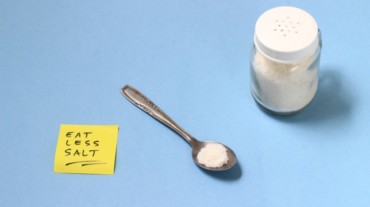
If you think only too much sodium in your system is bad for you, you’re wrong! Turns out, low sodium levels can also be dangerous for your health. Sodium is an electrolyte that assists in regulating the amount of water in your cells. Abnormally low levels of sodium are characterised by a medical condition known as hyponatremia. Anything lower than 135 milliequivalents per litre (mEq/L) indicates low levels of sodium. The National Institutes of Health (NIH), UK, defines hyponatremia s a condition in which the concentration of sodium in your blood is dangerously low.
Here’s everything you need to know about the condition and what you can do to increase low sodium levels.

A person who has low levels of sodium may experience the following signs and symptoms, according to NIH:
A slow decline in sodium levels for 48 hours or more can lead to several complications in your brain. Another cause is rapid brain swelling, which may even lead to coma and death if left untreated. Women in their pre-menopausal years seem to be most susceptible to brain damage brought on by hyponatremia. This might be connected to how women’s sex hormones affect the body’s capacity to maintain healthy salt levels, as per leading health authorities.
While the treatment of the condition depends on its severity, hyponatremia can be prevented naturally as well. However, that doesn’t mean that these ways are a replacement for medical treatment. Having said that, let’s look at the natural ways to increase sodium levels and keep diseases at bay:
Since sodium is responsible for controlling bodily fluids and blood volume and blood pressure, it is vital to keep your sodium levels in check. One way to do it is to eat sodium-rich foods. Eating cheese, dairy products, seafood, beets, carrots, and celery are some of the best foods to eat if you want to include more sodium-rich foods in your diet.
Salt is a dietary source of sodium that you can include in your diet. As per the World Health Organization (WHO), your salt intake should be less than 5 grams per day. However, consuming too much salt can be dangerous for your health so don’t consume more than required. Also, check with your doctor first, especially if you have hypertension, diabetes, kidney disease or more.
Do you tend to sweat a lot while doing a sports activity? If yes, you should drink more sports beverages that are healthy and contains electrolytes. Excessive sweating or dehydration can cause hyponatremia, and these drinks contain a mixture of nutrients like sugar, electrolytes, and water, which can help you deal with it.

Water is very important to maintain excess sodium levels in your body. Having enough fluids in your body will help you with hyponatremia. However, being over-hydrated can also be a problem. The best indicators of how much water you need are typically thirst and the colour of your urine. Light yellow urine is an indication that you are not dehydrated and consume enough water.
Certain underlying medical conditions such as kidney disease or adrenal insufficiency can cause your sodium levels to drop. So, the best way to manage your sodium levels in such cases is by addressing the underlying medical conditions with the help of a doctor.
Select Topics of your interest and let us customize your feed.
PERSONALISE NOW